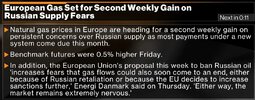over9k
So I didn't tell my wife, but I...
- Joined
- 12 June 2020
- Posts
- 5,524
- Reactions
- 8,091
Just run the swings in the meantime, tech's still your highest beta play by miles. TQQQ, SOXL, FNGU with 10-20% swings on the day...BoE has hiked rates to 1% overnight, citing inflation expectations of 10% into until Q4 2022 with energy costs playing the biggest contribution.
Interestingly, a 1% interest is the highest they've had since the GFC.... Big shifts on currency markets too, AUDUSD down 2%, BTC down 8%, US tech getting slaughtered, bonds up 5% - it was a risk-off day....
Whether this is continuation of a trend or volatility it might be too early to say, but US tech is starting to look oversold - FANG now approaching/past previd COVID 2020 prices....



